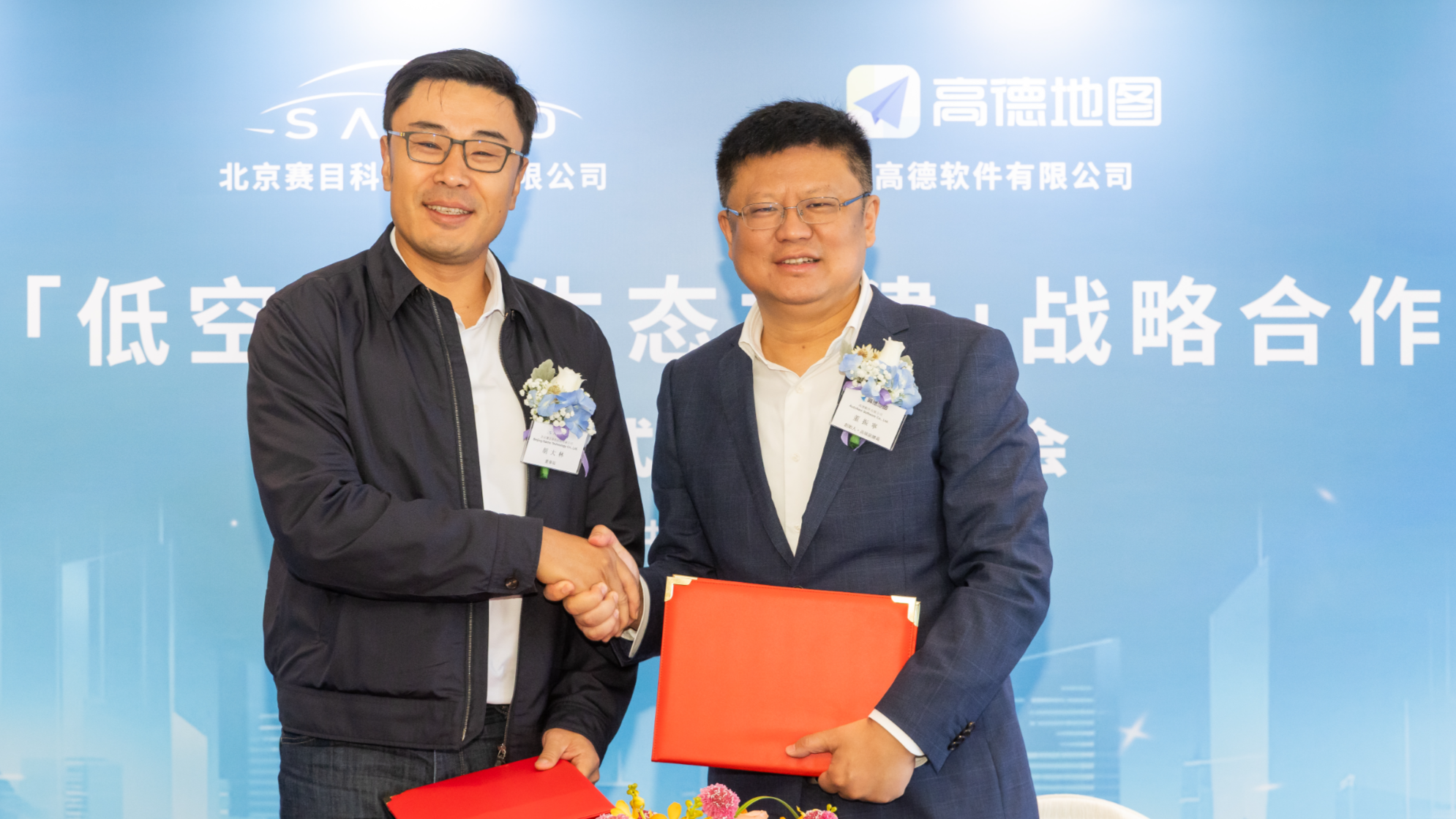
Hong Kong-listed Beijing Saimo Technology Co Ltd, which focuses on intelligent connected vehicle (ICV) simulation testing technologies, signed a strategic cooperation agreement with mapping services provider AutoNavi Software Co Ltd in Hong Kong on Wednesday as the tech firm doubles down on promoting the development of the low-altitude economy. This refers to economic activities and industries that operate in airspace typically below 1,000 meters.
Under the agreement, the two will deepen collaboration in the areas of intelligent equipment, smart transportation, and smart cities.
The partnership will see the building of a city-level integrated service platform of the low-altitude economy by leveraging Saimo’s simulation testing technologies and AutoNavi Software’s systems. The platform, which covers airspace management, task scheduling and operational inspection functions, will support multiple application scenarios, including logistics distribution and emergency inspections.
READ MORE: Development of HK’s low-altitude economy needs to be accelerated
The two companies will work together to promote the upgrading of low-altitude economy standards and formulate a replicable technical management framework, taking reference from the experience gained from ICV standard formulation.
“Hong Kong serves as the ideal springboard in our internationalization drive, even amid the complex geopolitical environment. The city has various advantages, including robust talent pool, favorable business environment and excellent capital services,” Hu Dalin, chairman of Saimo, said.
“Our commitment to Hong Kong is not about a single transaction, but establishing a long-term presence.”
The company will leverage its experience on the Chinese mainland to help promote growth of the low-altitude economy in Hong Kong and capitalize on the city’s unique role linking the mainland with the world to fuel its global expansion, he added.
Dong Zhenning, vice-president of AutoNavi Software, said the company will work with Saimo in establishing a three-dimensional digital foundation of the low-altitude economy in the country so as to provide guarantees for safe, efficient and low-cost low-altitude operations.
The collaboration coincides with Hong Kong ramping up efforts to develop its low-altitude economy. The special administrative region government launched the first batch of 38 low-altitude economy regulatory sandbox pilot projects in March. The projects cover various fields and application scenarios, including emergency and rescue, logistics and distribution, inspections and safety maintenance, surveillance and low-altitude infrastructure.
Hong Kong Chief Executive John Lee Ka-chiu has pledged to promote safe and healthy development of the sector by bringing together scientific and corporate strengths and striving to take the lead in the field.
READ MORE: Official: Low-altitude economy to further drive I&T growth in HK
According to the Civil Aviation Administration of China’s projections, China’s low-altitude economy will be worth 1.5 trillion yuan ($208.56 billion) this year, and to hit 3.5 trillion yuan by 2035.
Contact the writer at sally@chinadailyhk.com


